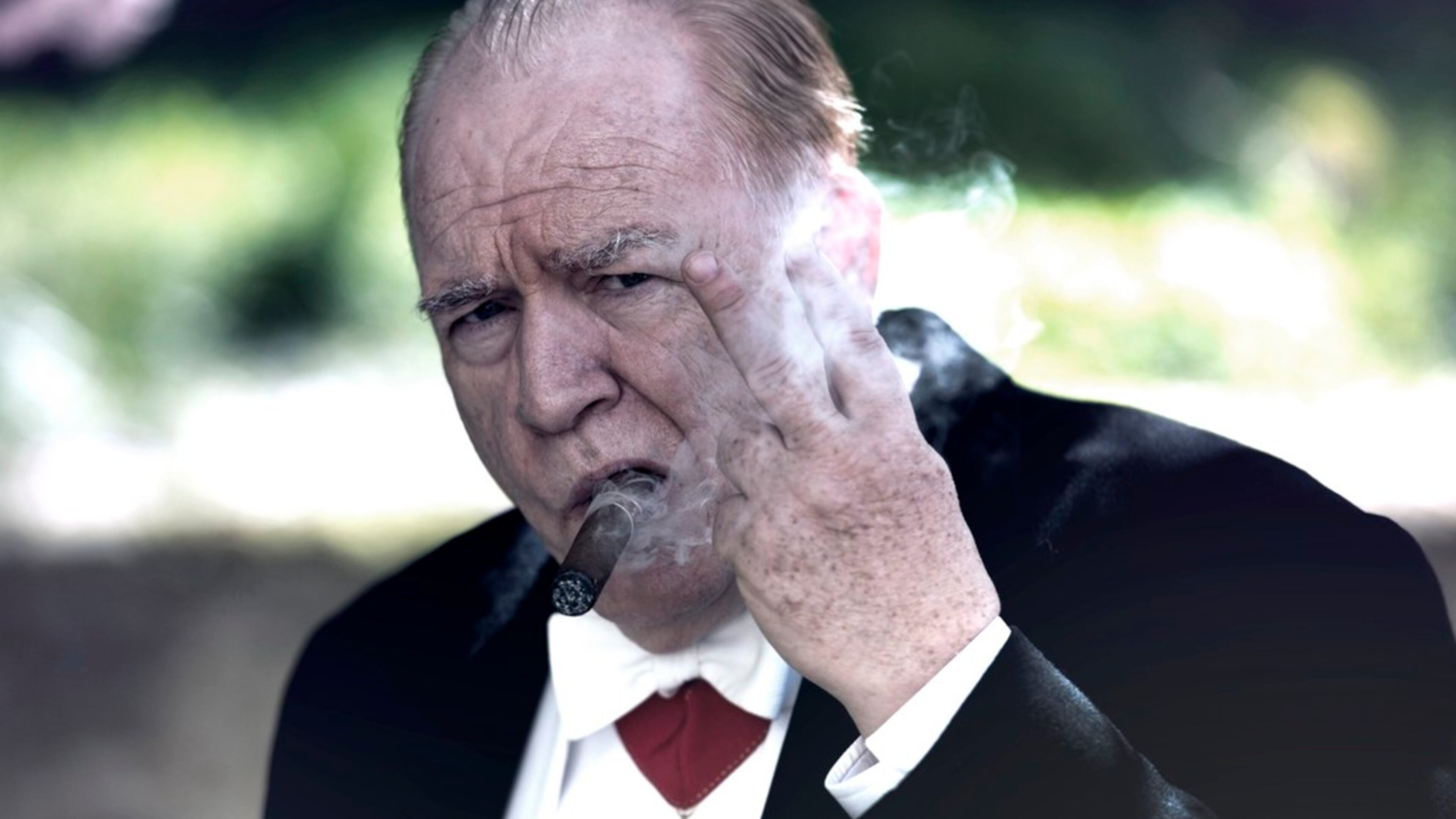"Churchill" actor Brian Cox: iconic PM was "truly a man of destiny"

"Churchill," opening Friday and starring Brian Cox in the title role, opens as the Prime Minister who saw Britain through the horrors of World War II is strolling along the beach, ruminating over the human cost of victory. In case it's unclear that war is hell, the waters appear awash in blood, an unsubtle artistic touch meant to signify what Churchill is thinking.
The D-Day invasion - referred to by its code name, "Operation Overlord" - looms and Churchill is portrayed as adamantly opposed to the joint operation, so haunted does he remain by the carnage of the previous war. He stomps around like a giant toddler in tantrum mode, a cigar instead of a pacifier in his mouth, after having been roused from a nest of paperwork he's drunkenly conked out in the middle of.
While Churchill is tricked out in familiar Churchillian garb - the bowler hat, the dot bow tie that inspired this one sold by Ben Silver - the portrayal is a departure from the Last Lion history knows as the fearless defender of the realm, rallying his countrymen with vows to fight on the seas and oceans and never surrender and all that.
In an interview with the AJC Cox called the script, written by Alex von Tunzelmann, "detective work" that pulls together "contradictory elements" of Churchill's public and personal life.
Andrew Roberts, author of "Masters and Commanders: How Churchill, Roosevelt, Marshal and Alanbrooke Won the War in the West 1941-45," is among the Churchill scholars who have been far more pointed in assessing the film.
"The only problem with the movie ... is that it gets absolutely everything wrong. Never in the course of movie-making have so many specious errors been made in so long a film by so few writers," wrote Roberts, visiting professor at the War Studies Department at King's College, London and the Lehrman Institute Lecturer at the New York Historical Society, in this withering critique . "Churchill is presented as a petulant, ill-tempered, sarcastic, unpleasant, decrepit, oafish drunken has-been who was trying to disrupt the war effort and who violently opposed the campaign that was ultimately to liberate Europe, and so therefore was totally wrong on almost the single most important military decision of the war. It is a depiction that Dr. Goebbels would have been delighted with, but it flies full in the face of every single account left by those around Churchill at that transcendental time in world history."
Cox, a Scottish actor who played Argyle Wallace in the 1995 period piece "Braveheart" in 1995 and Gen. Mikhail Kutuzov more recently in the Amazon series "War and Peace," contemplated his own experience when preparing to embody Churchill.
"In 1938 nobody wanted to go to war again," said Cox, also known for "The Bourne Identity," "The Bourne Supremacy," and his role as Dr. Hannibal Lecter in "Manhunter," which preceded "Silence of the Lambs."
"In my hometown 20 percent of the youths were wiped out.They called (WWI) the 'war to end all wars.' The treaty of Versailles created the soil for an Adolf Hitler to grow. We were very foolish."
The challenge of portraying Churchill during such a seminal moment in history appealed to him.
"You can accuse him of all sorts of things. He was very wrong with the Indians. He wasn’t good with women’s suffrage," he said. "Politically he’s opposite of what I believe. What he did do was step into the and stand up against Nazis."
We asked why now feels like the time for "Churchill" the movie. Then as now, international strife is driving the geopolitical conversation - although Western allies seem far less united in how to combat ISIS than the response to Nazi Germany. And what a contrast in heads of state: Churchill gave us " we shall fight with growing confidence and growing strength in the air, we shall defend our island, whatever the cost may be." (You can buy a CD of his famous speeches at Ben Silver as well).
You know, in other words, "covfefe."
Cox thinks Churchill would have opposed Brexit. What if he had Twitter at his disposal for impromptu missives instead of the diligently crafted broadcasts he's famous for. Could Churchill be as effective under a modern media microscope?
"I’m not sure he could," he said. "Churchill might have suffered a little bit from overexposure."
He thinks the movie is a fair portrayal.
"In the end he came into his own and he held it brilliantly. He is totally responsible for rallying the British people," Cox said. "He wasn’t an opportunist politician. We are plagued by opportunist politicians. He could be the last of a breed. He could also be the model for what a new breed should be. Truly a man of destiny."
Here's the trailer:


